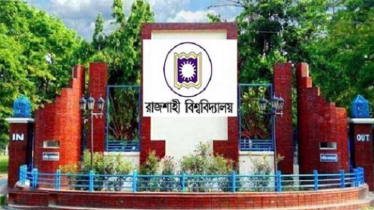
A high-level workshop convened by the Bangladesh Academy of Agriculture in collaboration with leading agricultural universities has strongly advocated for the mandatory inclusion of internships in all undergraduate agricultural degree programs across the country. The event, held on April 26th at the Bangladesh Agricultural Research Council (BARC) Auditorium, underscored the critical role of practical experience in preparing graduates for the demands of the agricultural sector.
Distinguished figures from academia and government graced the occasion. Dr. A.S.M. Faiz, Chairman of the University Grants Commission (UGC), attended as the Chief Guest, emphasizing the UGC's commitment to enhancing the quality and relevance of higher education in agriculture. Vice-Chancellors of Bangladesh Agricultural University, Gazipur Agricultural University, and Sher-e-Bangla Agricultural University were present as Special Guests, highlighting the unified stance of these institutions on the matter. The Chairman of BARC served as the Guest of Honor, while the workshop was chaired by Prof. Lutufur Rahman, President of the Bangladesh Academy of Agriculture.
The central theme of the workshop revolved around bridging the gap between theoretical knowledge acquired in classrooms and the practical skills required in real-world agricultural settings. Participants emphasized that internships provide invaluable hands-on training, exposing students to the daily realities of agricultural work, including office procedures, field operations, data management, and report writing – experiences often lacking in traditional academic curricula.
"Internships are no longer a luxury but a necessity for our agriculture graduates," stated Prof. Lutufur Rahman during his address. "Employers actively seek candidates with practical experience, and mandatory internships will equip our students with the essential skills and confidence to excel in their careers."
The workshop acknowledged that while some universities have already incorporated internships, often as a final semester requirement, students frequently face challenges in securing suitable placements. To address this, stakeholders urged relevant organizations, including the Department of Agricultural Extension (DAE), Department of Livestock Services (DLS), Department of Fisheries (DoF), Bangladesh Agriculture 1 Development Corporation (BADC), Research Institutes, NGOs, and private sector entities, to actively engage in offering internship opportunities.
The importance of providing honorariums to interns was also discussed, although it was agreed that encouraging participation should remain a priority even without financial incentives. The consensus was clear: widespread internship opportunities are crucial for producing a skilled and competent agricultural workforce.
Furthermore, the workshop extended its recommendations to postgraduate programs, urging the UGC and the Ministry of Education to sensitize relevant organizations to provide internship avenues for graduate students as well. This move aims to further cultivate specialized skills and expertise within the agricultural sector.
The collective call from agricultural leaders signals a strong push towards integrating practical learning as a fundamental component of agricultural education in Bangladesh, ultimately aiming to enhance graduate employability and strengthen the nation's agricultural workforce.





